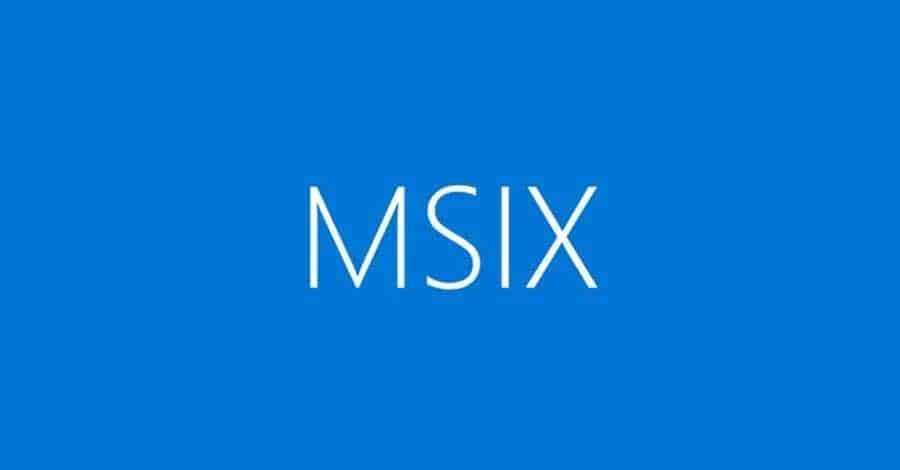Files that have the .msix extension are application installation files in Windows. Microsoft uses recently files with MSIX extensions as an alternative to EXE, MSI and AppX packages.
So until now Windows has three common installation files: MSI, EXE and AppX. Each of them has different advantages and disadvantages.
MSI
MSI installers are the best for simple installations. They use a basic graphical user interface (GUI) that installs or uninstalls the program without any add-ins or options.
This installer is a compressed set of installation files that contains all the necessary data for the software you want to install. The installation process does not detect if the software already exists or if any components are missing, and can replace any files in the installation path. This simplicity means "silent" installation of all defaults.
EXE
EXE installers are more flexible than MSI installers, but with add-ons possibilities complications come. This installer may have options for languages, add-ons, crawl, and more. EXE installers allow custom installation paths and selection of the components you want to install.
Developers can add their own branding to the GUI and embed the terms of service in a different language or point to a webσελίδα for a welcome message. All of this makes unattended installations much more complicated.
AppX
AppX installers are used for Universal Windows Apps and have some of the features of MSI. They are simple installers with very few options to the end user. They allow easier upgrades from older software versions to newer and allow for clearer uninstallations.
AppX installers use container technology, so they are isolated from the rest of the operating system for greater security. Unfortunately, a program written with an MSI or EXE installer will have to be rewritten or converted from scratch into an AppX package. AppX packages can only be used with Windows 10.
MSIX
MSIX files have the advantages of AppX and are very similar to MSI files. This is a simple installer that even system administrators can create script for automatic unattended installations. It also uses container technology, which allows for smooth and secure installations, uninstallations and upgrades.
From the user's point of view, MSIX files are installed as MSI files, but in background the installation is done like AppX. Additionally, MSIX files can be distributed outside the Microsoft Store. It is easier to convert older programs and repack them to MSIX.
But the most exciting feature of MSIX is that Microsoft has an SDK to enhance platform compatibility. As shown in GitHub page, support is available for iOS, MacOS, Android, Linux but also for older versions of Windows.
Uninstall
When you install a program with MSI and EXE files, this application can make changes to the registry, and create files and folders across your system. But when you remove the application, many of these files and changes to the registry remain, leaving lots of junk on your system.
With MSIX files, programs are installed into containers that contain all the necessary files. So when you try to remove the application, all the data is deleted and there is no junk in your system.
Are MSIX files secure?
This is another installer. Like any other installer, if you do not trust the source, do not run the application on your computer.
When will we see the MSIX files?
Microsoft is still developing the platform capabilities and, until recently, only Windows 10 Insiders could create MSIX packages.
But even after full development, developers will have to change installers that use years. Adopting a new format comes with risks and costs. We hope to see the new technology soon.
______________
- Macaulay Library: The largest online library of natural sounds and videos
- VirusTotal Monitor is the new Google security service
- AVI (Audio Video Interleave) what do you know about files?
- Windows 10 April: Have you lost your desktop?





